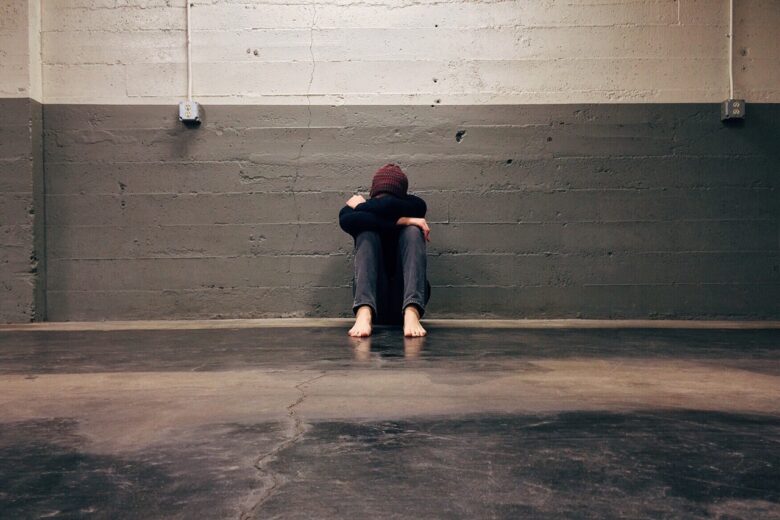Depression can break you if you do not know how to deal with it. It is a major depressive disorder that is serious and common. It negatively influences how you act, your way of thinking, and how you feel.
Despite depression’s serious threat to our health, it is treatable. Its treatment, however, may not be easy and quick, depending on the patient’s recovery and cooperation. Check-ups, therapies, and medications are some of the common methods to monitor the progress of patients with depression.
To help you better understand the process of coping with depression, we will discuss the following:
- Why dealing with depression is difficult
- Tips to cope with depression
- When to consult with a medical professional
So, let us begin!
Why Is It Difficult to Deal with Depression?

The impact of depression can drain your drive, hope, and energy. It makes it harder for you to make a move to help you feel better. At some point, thinking about simple things like exercising can seem to be extremely exhausting.
While coping with depression may not be easy, you have control over it without even realizing it. The key to it is to start small. It may feel exhausting, but you can use your reserves to move. It should be enough to take a walk outside and breathe fresh air.
The hardest part of the process is the first step. However, as simple as walking outside can already make a huge difference. This can increase your energy levels and boost your mood. This point is crucial to take your recovery to the next small step.
Using this strategy can soon lift the heavy feeling caused by depression. When you feel better, you can start feeling happy, healthy, and hopeful again.
Effective Tips to Cope with Depression
Now that you know why depression is difficult, it is time you learn some effective tips to recover from it.
1. Stay Connected With Others
Your loved ones are part of your support system in recovering from depression. It is difficult to beat depression on your own. However, the effect of depression can make it hard for you to reach out to others. You tend to isolate yourself because people might not understand your situation.
Despite this negativity, reaching out to your loved ones at least is significantly helpful. Your family and friends are willing to help. Try to talk to them about how you feel. They do not need to fix you. You only need a good listener beside you.
You can also reach out to a community that supports people with depression. They have members who are willing to listen and help you. They also have activities that can make you feel better.
If you do not feel like reaching out to people, you may want to get a pet. Cats and dogs are the most common, and they can give you love and affection.
2. Perform Activities That Make You Feel Better

Doing things that make you feel happy and better is also beneficial. It energizes and relaxes you, regaining your motivation back. Things you can do are as follows:
- Adding fun activities to your daily schedule
- Setting limits on things you can do
- Learning how to manage stress
- Switching to a healthy lifestyle
You can do a hobby you like doing before. If you are into artwork, you can do DIYs, such as recycling things. Reusable bottles are perfect for this craft, and you can contact a beer bottle supplier such as this one that offers high-quality materials. Design these bottles using your creative skills as they are perfect as home decorations, gifts, and even souvenirs. This will help switch your mind from thinking negatively to thinking positively.
3. Be Physically Active
It can seem daunting to even get up from bed if you suffer from depression. However, exercising is powerful in combating depression. Performing a workout routine can help ease symptoms of depression.
Again, you can start small. You can do light exercises like walking outside for 30 minutes. Increase the time and intensity as you progress.
When you do your exercise, it is important to insert a mindfulness element into it. Concentrate on your movements and how you feel with your every move.
You can also exercise with someone, so you have somebody to talk to. Joining an exercise class is even better. You can interact with a lot of people.
4. Eat Healthily

Your diet and eating habits are other elements in fighting depression. What you eat can directly influence how you feel. Your meal should contain the right amounts of protein, carbs, healthy fats, and fiber. It is also important to avoid unhealthy foods such as:
- Foods with high amounts of preservatives
- Trans fats
- Alcohol
- Caffeine
- Sweets
Avoid skipping meals as well, so you do not overeat on the next meal. Going without food for too long can make you feel hungrier, tired, or irritable.
Increase the intake of B vitamins, too. Deficiency with vitamins can trigger symptoms of depression. You can take B vitamin supplements or eat foods rich in them such as:
- Eggs
- Chicken
- Beans
- Leafy greens
- Citrus fruits
5. Expose Yourself Under the Heat of the Sun Every Day
Sunlight helps boost your mood and increase levels of serotonin, the happy body chemical. Therefore, it is crucial to get daily doses of sunlight for 15 minutes. Make sure to use sunscreen when outside though.
The best times of the day should be early in the morning and later in the afternoon. You can even double the benefits if you perform your exercise outside.
6. Challenge Your Mind When Thinking Negative Things

Depression gives out negativity, so you may feel weak, hopeless, and powerless. It even negatively affects your expectations and how you see yourself.
When these negative thoughts are overwhelming, it is important to remind yourself that it is depression kicking in. Fighting these thoughts may be hard and take a long process. However, you can be optimistic again when you continue to challenge negative thinking.
What you can do is determine the thoughts that trigger depression. This way, you can replace them with a balanced way of how you think things. You can ask these questions to yourself:
- How will I look at this situation with a positive mind?
- Is there a different way of seeing this situation?
- Is there any proof that this thought is true?
As you evaluate your thoughts using these questions, they quickly crumble. During the process, you will have a balanced perspective, relieving depression.
When Should You Seek Professional Help?
If you already followed self-help but see no progress, it is time you get help from a doctor. This does not mean you are weak. It is only depression that fuels your mind that you are weak. Additional help from a professional can speed up recovery.
Conclusion
Depression is a serious mental condition that needs self-help, family support, and professional guidance. Dealing with it requires patience because it is a long process. Despite the challenge, there is always a way to recover from it. If you are experiencing symptoms of depression, do not hesitate to ask for help!


